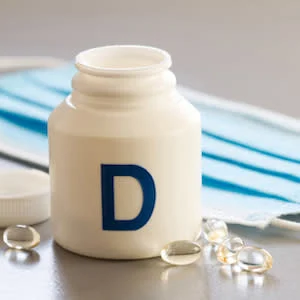Findings from two large clinical trials show that increasing vitamin D levels in adults during the COVID-19 pandemic was not associated with protection against coronavirus or other respiratory tract infections.
Vitamin D has long been recognised to support innate immune responses to respiratory viruses and bacteria. Some studies show that vitamin D may protect against respiratory tract infections, particularly among people who are vitamin D deficient. During the pandemic, vitamin D has received much attention as a potential strategy for preventing and treating COVID-19. But the evidence so far shows mixed results.
The first trial was carried out in the U.K. with 6200 patients. None of the participants used vitamin D supplements at the time of enrollment. Half of the participants underwent a vitamin D blood test. Those with low vitamin D levels received either 3200 IU/day or 800 IU/day of vitamin D supplements for six months, while the other half received no test or supplements.
The study showed no effect of vitamin D on diagnosed acute respiratory tract infections or lateral flow test or RT-PCR confirmed covid-19 cases over a six-month follow-up period. Adverse events were similar between the two groups.
The second trial was conducted in Norway using cod liver oil which contains low doses of vitamin D and vitamin A as well as omega-3 fatty acids. Thirty-four thousand seven hundred forty-one people who were not using vitamin D supplements were enrolled in the study and received either 5 mL cod liver oil or 5 mL placebo daily for six months. 86% of the study participants had adequate vitamin D levels at the start of the study. Results of this study also showed no effect of cod liver oil on acute respiratory infections or COVID-19 compared with placebo. There were no differences in the side effects either.
Findings from both these studies suggest that vitamin D supplements do not reduce the risk of COVID-19 or other acute respiratory infections. Vaccination continues to be the most effective way to protect people from COVID-19.
Source: BMJ
Image Credit: iStock
References:
Jolliffe DA, Talaei M, Vivalid G et al. (2022) Effect of a test-and-treat approach to vitamin D supplementation on risk of all cause acute respiratory tract infection and covid-19: phase 3 randomised controlled trial (CORONAVIT). BMJ. 378:e071230.
Latest Articles
vitamin D, vaccination, vitamin D supplements, COVID-19
Vitamin D Supplements and Risk of COVID-19










